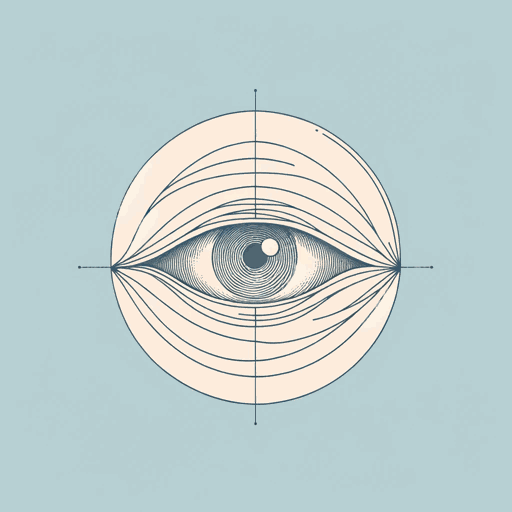43 pages • 1 hour read
George BerkeleyThree Dialogues between Hylas and Philonous
Nonfiction | Book | Adult | Published in 1713A modern alternative to SparkNotes and CliffsNotes, SuperSummary offers high-quality Study Guides with detailed chapter summaries and analysis of major themes, characters, and more.
Summary and Study Guide
Overview
Three Dialogues between Hylas and Philonous is a 1713 book of metaphysics written by Irish philosopher George Berkeley. The book, consisting of three separate dialogues between Hylas and Philonous, represents an argument between materialism (Hylas) and idealism (Philonous). Berkeley’s idealism was a response to what he viewed as the materialist predisposition to skepticism and eventually atheism. Berkeley primarily argues that idealism (only minds and ideas exist) is a more coherent outlook than materialism, as materialism depends on the use of reason over sensory observation. Berkeley’s arguments rest on the concept of immaterialism—the claim that matter does not exist independently from perception. The book is considered a landmark, foundational text in the philosophy of idealism.
This guide is based on the Kindle edition of the 1979 8th printing edition published by Hackett.
Summary
Three Dialogues between Hylas and Philonous is widely understood to be an imagined conversation between the author of the text, George Berkeley (Philonous), and the philosopher John Locke (Hylas) as a champion of materialism. As such, the form of the text is essentially a series of three distinct conversations between the two men, which follows a general philosophical tradition established by Plato in the Socratic Dialogues. The men question and answer each other throughout the dialogues as they argue for their positions. In the third dialogue especially, Hylas takes a more aggressive posture and poses a series of questions that are designed to anticipate materialist objections to Berkeley’s idealism. In this way, the dialogues both define Berkeley’s views and defend them against their chief opponents.
In each dialogue, the men meet for a walk and begin their conversation. Hylas (the stand-in for John Locke and the materialists), is initially quite confident and even rigid in his views, but over the course of his conversations with Philonous, he becomes progressively less certain. This gradual shift from certainty to doubt provides the main narrative thrust of the book. By the beginning of the third dialogue, Hylas’s views have collapsed into full-blown skepticism. Ironically, this is the exact charge Hylas levels against Philonous at the outset of the first dialogue. Because Philonous contends that matter does not exist independent of the mind that perceives it, Hylas labels him a skeptic.
Both Philonous and Hylas heavily depend on logos—the rhetorical practice of appealing to logic or reason to persuade one’s audience. Berkeley establishes in the book’s preface that his argument will be grounded in logic, not on superstition or tradition. He promises to rely upon a logical sequencing of ideas to advance his position.
Philonous often uses Hylas’s words and ideas against him, a particularly effective form of argumentation that ties up Hylas and ultimately draws concessions out of him. Hylas intuitively understands the tactic, even pointing it out to Philonous toward the end of the text.
Another of Philonous’s primary rhetorical tactics is argumentum ad absurdum. He takes an initial comment or idea forwarded by Hylas and then extends it to a senseless, or absurd, conclusion. Oftentimes, in response, Hylas backtracks or attempts to modify his position by degrees. As an example, at the beginning of the first dialogue, just as Philonous begins delving into his argument, the two discuss the nature of heat. In keeping with his materialist philosophy, Hylas assumes that heat is an inherent quality of objects—that whether something is hot or cold does not depend on the person who touches it. As a response, Philonous proposes a thought experiment to Hylas and asks him to imagine having one hand that is hot, and one that is cold, and placing both in a vat of water. One hand would perceive warmth and the other a cooling sensation. The water itself cannot be both warm and cold at the same time. Therefore, it has no inherent quality of heat or cold within it. Instead, heat is a perception.
As a result of the thought experiment, Hylas sees the absurdity of his initial claim and subsequently modifies his position. He claims that heat is a secondary quality, and that most philosophers agree with Philonous that secondary qualities only exist because of perception. He then advances a modification of his position, and begins discussing primary qualities such as motion, extension, and figure. Philonous dissects this modification in a very similar fashion, using argumentum ad absurdum as the primary counterargument strategy. Hylas’s process of backtracking and then offering a modification of the original position is prominent in the text, especially in the first dialogue. As a natural consequence, there is evidence of a corresponding increase of doubt in Hylas’s conceptions of material existence.
Thematically, the book focuses on the conflict between idealism and materialism, affirming the former while critiquing the latter. Idealism maintains that only ideas and minds (or spirits) exist in the world. It denies the existence of matter independent of sensory observation. This is called immaterialism, and through Philonous, Berkeley explores how idealism is a more coherent philosophy than materialism. Though it seems entirely counterintuitive to Hylas, and potentially many modern readers, idealism is grounded in Berkeley’s strict empiricism. In his view, only sensory observation and reflective observation offer a pathway to true knowledge. The existence of sensible objects (matter) can only truly be verified by a mind that perceives them. Along these lines, the text takes a deep look at the role perception has on the nature of existence. Berkeley argues that of the two philosophies, materialism is the more likely to lead to skepticism and atheism.
This bears out by the third dialogue as Hylas appears to have adopted an entirely skeptical view of existence. At the beginning of this final dialogue, Hylas asserts that nothing can ever truly be known. Hylas’s crisis indicates the natural conclusion of materialism as Berkeley saw it. By insisting on the existence of mind-independent matter, Hylas and materialists in general prioritize the use of reason and inference over the evidentiary experiences brought about by their own senses. This view creates the kind of doubt experienced by Hylas in the third dialogue because it insists on the existence of substance that cannot really ever be verified. Doubt is in some ways a built-in feature of the materialist system.
As a bishop of the Anglican church, Berkeley saw materialism ultimately as a threat against Christian theology. He saw this view as leading to atheism, and Three Dialogues is an attempt at using logic to prove the existence of God. Berkeley does not see matter as the source or the ultimate cause of ideas. In his view, all sensible objects in the world are perceived ultimately by God. If God is omniscient, so the argument goes, then nothing can exist outside his perception.
Therefore, all matter is perceived by God. As an example, take the well-known paradox of the tree falling in the forest: If nobody is there to hear it, does it make a sound? In Berkeley’s view, it would only make a sound because God is able to hear it.
Berkeley also takes a counter-intuitive approach to the way he believes God exists. Unlike the common view of the time, which held that humans presuppose that things are known to God because He exists, Berkeley argues that God exists because all things must be perceived by Him.
As the dialogues near conclusion, Hylas has yielded to Philonous’s position and accepts the premise of idealism. However, one exception he makes is that he chooses to redefine what matter is, given the context of the dialogues. While not a complete concession, Hylas ultimately does come around to Philonous’s argument. The dialogues conclude with Philonous drawing a metaphor between a fountain of water and materialism, suggesting that like the water in the fountain pushed down by gravity, materialism likewise has similar limitations and will eventually collapse when those limits are reached.
Related Titles
By George Berkeley


